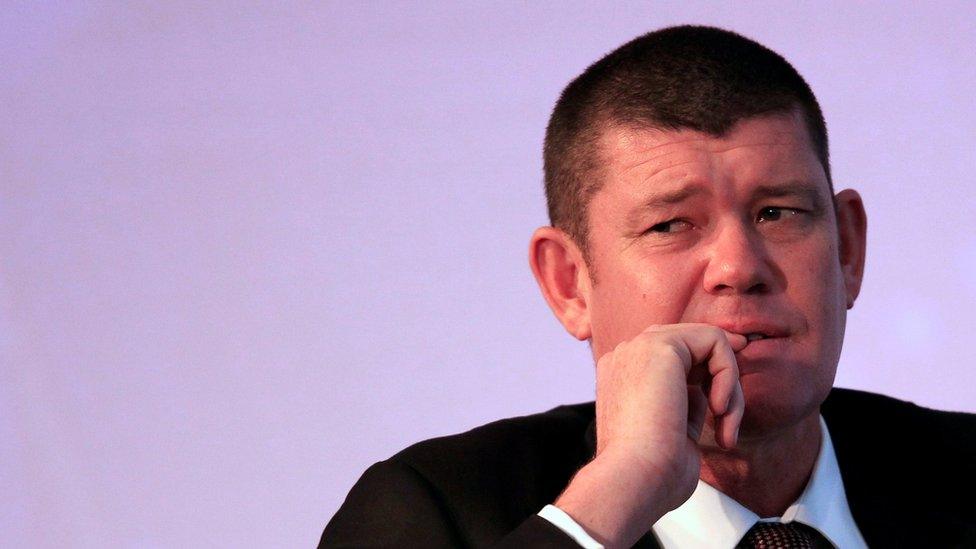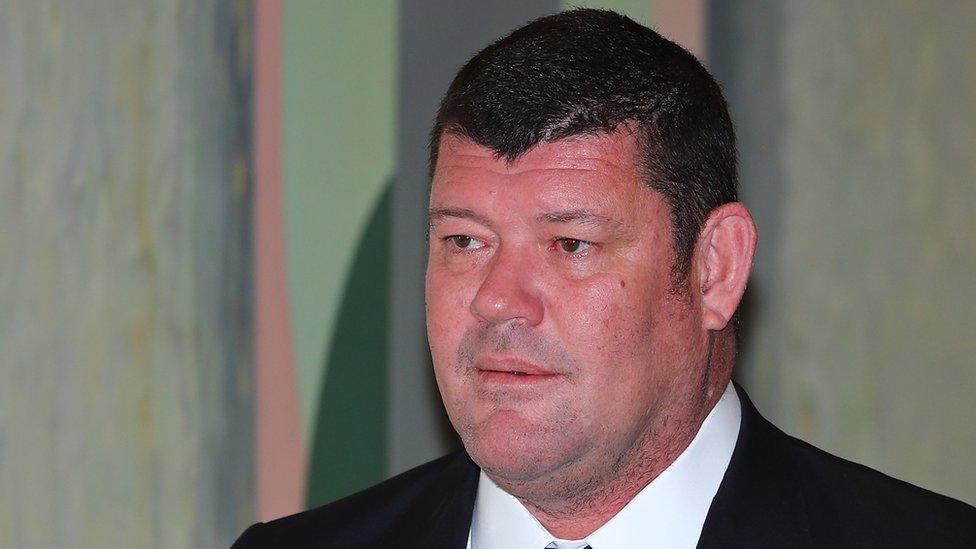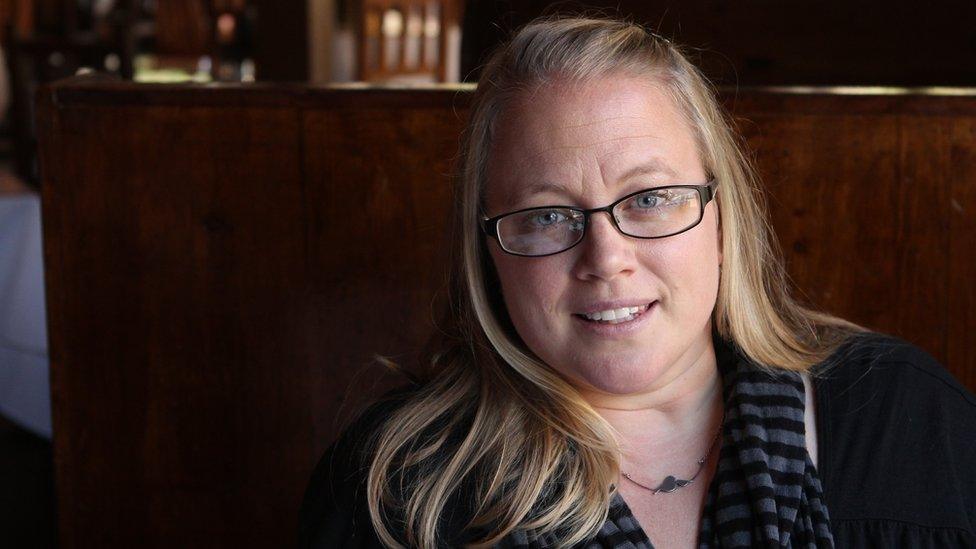James Packer: Resignation puts focus on 'high-flier' mental health
- Published

James Packer is one of Australia's most well-known business figures
Australian billionaire James Packer has received much public praise since quitting his gaming empire due to mental health reasons.
His resignation has also prompted discussion about mental health at the top of business.
Mr Packer, 50, stepped down as a director of Crown Resorts Limited last Wednesday.
He has since sought treatment at a high-end hospital in the US and has been joined for support by his mother and at least one close friend, Australian media reported.
Mr Packer has been described as one of the most senior business figures to step down after publicly disclosing what his private firm called "mental health issues".
"This makes Packer a lonely figure in business, but at the same time a brave and important one," John Brogden, chairman of Australian crisis support service Lifeline, wrote in The Australian Financial Review, external.
Business leaders are often reluctant to reveal mental health illnesses because of "how that would be perceived by the markets or by their colleagues", Mr Brogden said.
Prominent figure
Mr Packer became one of Australia's richest people after his father, prominent media tycoon Kerry Packer, died in 2005.
"You can compare it to people overseas, the Rockefellers, the Ford family, someone like Richard Branson," Australian sharemarket analyst Evan Lucas told the BBC.
Mr Packer only rejoined Crown's board last year after the company exited its Macau and US investments, and switched its focus back to Australia.
It followed the jailing of 16 Crown employees in China for illegally promoting gambling.

Crown's gaming interests include a casino in Melbourne
In recent times Mr Packer has been involved in a high-profile split from singer Mariah Carey and was caught up in a scandal involving Israeli Prime Minister Benjamin Netanyahu.
Dr Grant Blashki, from Australian mental health group Beyond Blue, said being in the public eye has the potential to harm mental health.
"For people who are rich and famous... there's a tendency to keep up appearances and appear as if everything is ok," he told the BBC.
Leaders 'not immune'
Mr Packer has sought help at the Pavilion clinic at the McLean Hospital, Boston, which offers a 14-day programme for $55,300 (£40,000; $A71,550).
Therapy with family members is encouraged as part of the plan, according to its website.
Dr Blashki said relatives could often help patients "get back to a normal day-to-day rhythm and help get them back to normal life".
He said the competitive culture of the corporate world - with its "quite brutal measurement and demands" - often sets up high levels of pressure.
This means that mental health can sometimes become tied to continued success, he said.
'Reputational damage'
Sir Graham Thornicroft, professor of Community Psychiatry at King's College London, agrees.
He noted that currently only around a quarter of people with mental health issues in the UK seek help, meaning that the vast majority "soldier on without getting the help they need".
Fears about seeking help for mental health issues often centre around an "expectation of reputational damage", particularly among those working in high-stress environments such as business or the military, he added.
However, Prof Sir Thornicroft also noted the importance of having a variety of voices speaking out about mental health problems.
He cited the example of Time to Change, a UK campaign to end mental health discrimination launched in 2007, which initially focused on celebrities sharing their experiences of mental illnesses.
But feedback showed that not everyone could relate to the wealthier stars featured in the campaign, and so was expanded to include people from a wider range of ethnic and socio-economic backgrounds.
Seeing mental health portrayed in the mainstream media not only raises awareness around mental health problems, but can also encourage people to seek help. Anecdotally, other professionals report a rise in the number of referrals after celebrities or television soaps address mental health issues.
Cases like James Packer's may therefore help fight the stigma which still surrounds mental health issues in the business sector.
As Dr Blashki noted: "Mental health can affect everybody, even for high-fliers, they're not immune."
Reporting by BBC's Frances Mao and Victoria Bisset

If you're in Australia you can get advice on mental health issues from:
In the UK:

- Published21 March 2018

- Published3 November 2016

- Published26 October 2017
